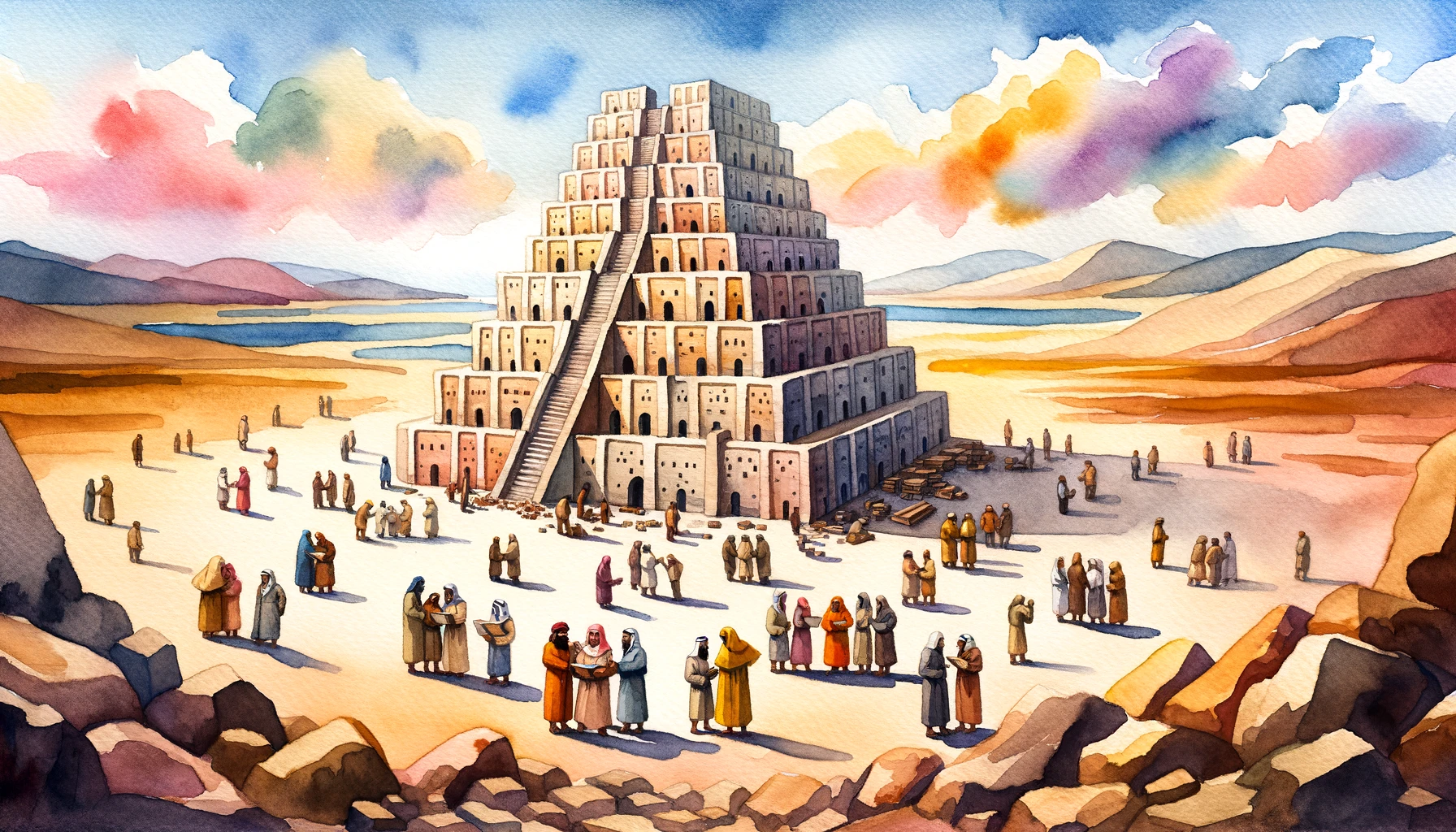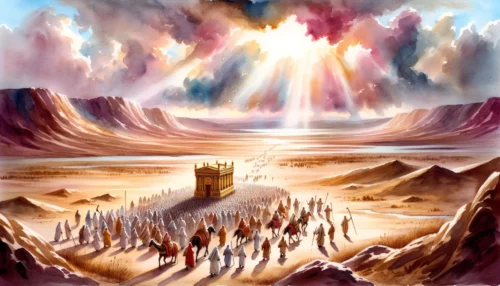The Tower of Babel is an intriguing and perplexing story from the Book of Genesis. Many people wonder why the construction of this tower was considered a sin, and what it has to do with the confusion of languages. In this article, we’ll explore the biblical perspective on the Tower of Babel and explain its significance to understanding human nature and God’s plan. Join us as we delve into the context, the motives, and the consequences of this ancient tale.
The Context: Ancient Babylonia and the Tower’s Purpose
The story of the Tower of Babel is found in Genesis 11:1-9. After the Great Flood, humanity began to repopulate the earth, and eventually, they found themselves in the land of Shinar, which is modern-day Iraq. In this region, the people discovered the process of brick-making and decided to build a city with a tower that reached the heavens.
“Now the whole world had one language and a common speech. As people moved eastward, they found a plain in Shinar and settled there. They said to each other, ‘Come, let’s make bricks and bake them thoroughly.’ They used brick instead of stone, and tar for mortar. Then they said, ‘Come, let us build ourselves a city, with a tower that reaches to the heavens, so that we may make a name for ourselves; otherwise we will be scattered over the face of the whole earth.'” (Genesis 11:1-4)
The Tower of Babel was built in a place called Babylon, which was a prominent city in ancient Mesopotamia. Babylon became known for its advances in science, art, and architecture, and the construction of the tower could be seen as a symbol of human progress and achievement.
However, from a biblical perspective, the purpose of the tower was not just an architectural marvel. The people of Babel wanted to build the tower to “make a name for themselves,” showcasing their pride and self-sufficiency. They desired to create a monument that would unite them and prevent them from being scattered across the earth.
This was in direct opposition to God’s command in Genesis 9:1, where He told Noah and his family to “be fruitful and increase in number and fill the earth.” The people’s decision to build the tower was an act of disobedience, as they sought to consolidate their power and stay together rather than dispersing and populating the earth as God had intended.
The Motives: Pride, Rebellion, and Unity
One of the primary motives behind building the Tower of Babel was pride. The people wanted to “make a name for themselves” (Genesis 11:4), which is an expression of their arrogance and desire for recognition. This prideful attitude led them to disregard God’s command to multiply and fill the earth, choosing instead to centralize their power and achievements in one location.
Another motive for constructing the tower was rebellion against God’s authority. By attempting to reach the heavens, the people sought to elevate themselves to the level of the divine. This act of defiance is symbolic of humanity’s ongoing struggle against God’s will and their desire to be in control of their own destinies. The builders of the Tower of Babel wanted to show their independence from God and prove that they could achieve greatness without His guidance.
Lastly, the people sought unity in their endeavor to build the tower. While unity in itself is not a negative concept, the unity they sought was based on pride and rebellion. Instead of turning to God for guidance and protection, they put their faith in human ingenuity and cooperation. Their pursuit of unity was ultimately an attempt to establish a world order independent of God’s sovereignty.
The motives behind the construction of the Tower of Babel can be seen as a combination of pride, rebellion against God’s authority, and a desire for unity based on human achievement rather than divine guidance. These motives not only reveal the flaws of human nature but also demonstrate humanity’s propensity to place its trust in its own abilities, rather than relying on God’s wisdom and direction.
The Consequences: Confusion of Languages and Dispersion of Humanity
As a response to the people’s pride, rebellion, and pursuit of unity apart from God’s will, He decided to intervene and put an end to their construction project. God chose to confound their language, creating multiple languages and causing confusion among the builders.
“But the Lord came down to see the city and the tower the people were building. The Lord said, ‘If as one people speaking the same language they have begun to do this, then nothing they plan to do will be impossible for them. Come, let us go down and confuse their language so they will not understand each other.'” (Genesis 11:5-7)
The confusion of languages led to the people being unable to communicate effectively, which in turn halted the construction of the tower. As a result, the people were dispersed across the earth, fulfilling God’s original command to fill the earth and multiplying throughout different regions.
“So the Lord scattered them from there over all the earth, and they stopped building the city. That is why it was called Babel—because there the Lord confused the language of the whole world. From there the Lord scattered them over the face of the whole earth.” (Genesis 11:8-9)
The story of the Tower of Babel serves as a powerful lesson about the consequences of pride, rebellion, and seeking unity apart from God’s plan. The confusion of languages and dispersion of humanity remind us of our reliance on God and the importance of submitting to His will. It also highlights the dangers of placing our trust in human achievements rather than in the wisdom and guidance of our Creator.
The Tower of Babel stands as a symbol of humanity’s arrogance, defiance, and desire for independence from God. Its construction led to the division of languages and the dispersal of people, illustrating the limitations of human power when it is not aligned with God’s purpose. The biblical account of the Tower of Babel serves as a cautionary tale and a reminder of the importance of humility, obedience, and trust in God’s plan for our lives.
Lessons from Babel: Reflecting on Our Own Lives
The Tower of Babel offers valuable insights into the dangers of pride, rebellion, and misplaced unity. As we reflect on this story, it is essential to consider how these themes might manifest in our own lives. Here are three personal questions to ponder:
- In what ways might pride and self-sufficiency hinder our relationship with God and others?
- Are there areas in our lives where we may be rebelling against God’s guidance or authority?
- How can we promote true unity, based on God’s love and purpose, rather than our own selfish desires?
May the story of the Tower of Babel inspire us to humbly acknowledge our dependence on God and seek His wisdom in all aspects of our lives. Let us be mindful of the lessons this ancient tale offers and strive to walk in alignment with God’s plan, knowing that He has our best interests at heart.














